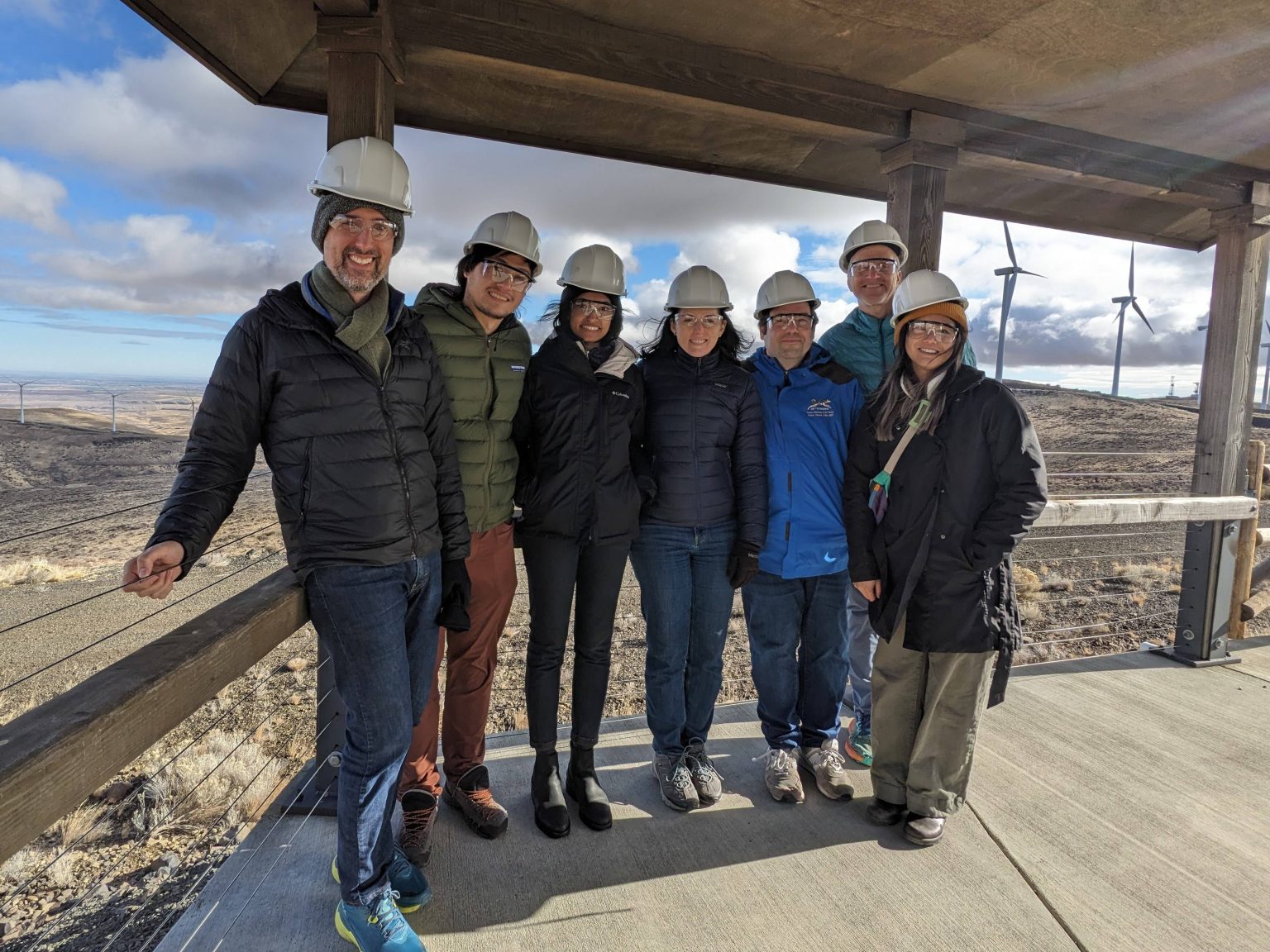Summarize this content to 2000 words in 6 paragraphs
The Ever.green team on a recent tour of a wind farm in Eastern Washington. Chief Revenue Officer Liz Pearce is fourth from left. (Ever.green Photo)
President-elect Donald Trump is a champion of fossil fuels and calls President Biden’s New-Deal style programs for battling climate change the “greatest scam in history.”
So what does a climate-focused startup working to support clean energy projects do to prep for Trump’s return to power?
Regroup and recommit, said Liz Pearce, chief revenue officer for Seattle’s Ever.green.
“The first thing we did as a company was to kind of come together and just sit with the fact that the work that we’re doing is even more important now,” said Pearce.
Ever.green, which spun out from Seattle’s Pioneer Square Labs in 2021, acts as a matchmaker between corporations that are spending money to reduce their carbon footprints and developers that need funding to build clean energy installations. The startup has built a marketplace to facilitate these transactions, with the goal of making them quicker, less risky financially, and easier for smaller corporations to participate.
Liz Pearce, chief revenue officer for Ever.green. (LinkedIn Photo)
One avenue of the company’s business is tied to the clean energy tax credits issued through the federal Inflation Reduction Act that help finance the power projects. Trump’s pick for the head of the Treasury Department is not a fan of the act, which he has called a “doomsday machine for the budget.”
But there are questions about which pieces of the policy will be spiked, and which will carry on. The act has invested in manufacturing and jobs in many Republican-leaning states, and a lot of big financial players are banking on the tax credits, Pearce said, which could make it politically tricky to broadly gut these efforts.
“That is a dynamic that doesn’t necessarily get talked about a lot, but Wall Street is investing in these clean energy projects in a massive way,” she said.
Pearce was formerly CEO of LiquidPlanner, marketing vice president of GoDaddy, and co-founded a recommendation platform called Fresh Chalk, among other roles. She’s taking a holistic look at the potential business impacts under a Trump administration, and here are some factors that Pearce thinks will bolster the clean energy sector going forward:
Clean energy is relatively cheap
“It’s really market forces that are the primary driver of the energy transition at this point,” Pearce said, “because the cost of solar and wind energy is so low compared to fossil fuels, and the associated benefits are so high. So, despite any policy changes, you can’t argue with lower prices, and that’s what we’re seeing in the space.”
Private sector will stick with climate goals
“We hear from customers that it doesn’t matter what administration is in place, they are going to continue to make progress on their sustainability goals, and whether that is through purchasing renewable energy, investing in tax credits, [or one of] many other programs that they have access to that will continue to accelerate.”
International and state policies will still require clean energy actions
“If you’re doing business in Europe, those requirements still stand. States like California are driving a lot of voluntary action in the U.S., and businesses are doing business things in California so they’re going to be held to the standard set by the states where they operate,” Pearce said. “Stepping back, in lieu of federal policy action on climate, the industry is going to be looking to states and local government to pick up the slack.”
Energy independence is a GOP priority
“When you think about it through the lens of what do conservatives historically care about,” she said, “it’s sovereignty — energy sovereignty. It is jobs — it’s manufacturing jobs. It’s being able to compete on the global stage with China and others, and the energy economy is a huge driver of all of those things.”
A global framework for managing emissions keeps driving investment
“What really drives corporate participation in the energy transition on the voluntary side is things like the [international] Greenhouse Gas Protocol, and what their guidance is,” she said.
Related coverage:












